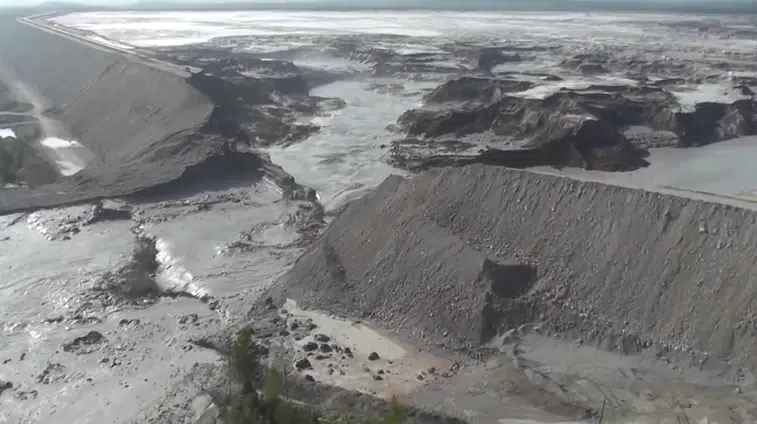
UNBC Researchers continue to monitor Mount Polley disaster
PRINCE GEORGE, B.C. — Although the water in the Quesnel Lake is considered safe to drink, many people have turned to other water sources.
This is in wake of Thursday’s two year anniversary of the collapse of Mount Polley’s tailings pond. Millions of cubic metres of mining waste were sent into area rivers and lakes. Local area First Nations are protesting the provincial government’s controversial decision to restore the mine’s operating permit last month. Meantime, researchers at UNBC are continuing to monitor the sediment quality and look into the impact the spill has had on the ecosystem.
UNBC Professor of Environmental Sciences, Phil Owens, is looking into how metal concentrations cause a behaviour change to Sockeye Salmon. “When this event occurred in 2014, it was the peak run of Sockeye Salmon moving through the system from the Quesnel River into the lake and into some of the upper streams where they spawn,” Owens said. “It’s very important that we continue looking at this for the next four years which is typically their cycle and understand how the concentrations of some of the metals that were delivered to the ecosystem may move into the salmon populations.”


